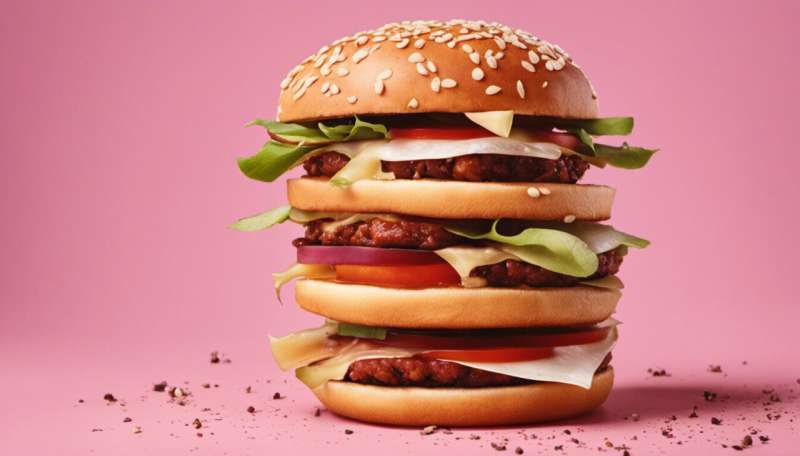Credit: AI-generated image (disclaimer)
How greatly does food advertising influence eating behavior? Quite a bit, a new Yale University meta-analysis of 45 studies suggests. The results, the authors say, should rekindle efforts to restrict food industry advertising, especially to children.
"Up to 26% of variance in eating behavior or eventual weight outcome has to do with craving and other responses to food cues, especially visual food cues," said Hedy Kober, professor of psychiatry and psychology and co-author of the paper published online in the journal Obesity Reviews. "The evidence is incontrovertible. And if food ads are that powerful, do we really want these ads running on Sunday morning cartoon shows?"
There has been a long debate about the magnitude of the effect of advertising on eating behavior, Kober said. Some studies have suggested the effect was minor, while others showed food cues have a major impact on eating and eventual weight gain.
To assess the magnitude of the effect across all studies in the field, Kober and graduate student Rebecca G. Boswell analyzed 69 statistics representing 3,292 participants from those studies. They report a significant effect of exposure to food cues and food craving on both eating behavior and weight gain, even with the inclusion of studies that had shown little or no impact of the food cues. Exposure to food cues such as food ads increased eating and weight gain in children and adults, nondieters and dieters, and lean and overweight individuals.
More information: Rebecca G. Boswell et al. Food cue reactivity and craving predict eating and weight gain: a meta-analytic review, Obesity Reviews (2015). DOI: 10.1111/obr.12354
Journal information: Obesity Reviews
Provided by Yale University





















